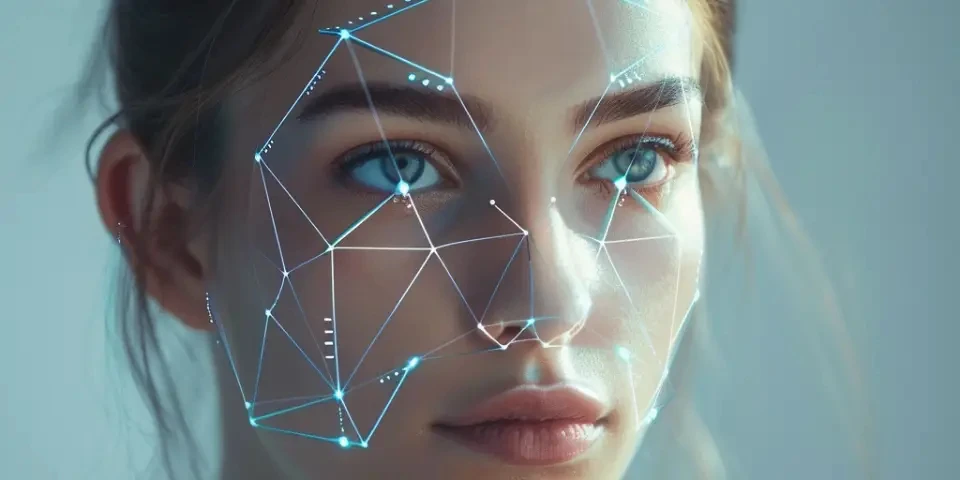Revolutionize Your Social Media Game with AI-Generated Images
Social media has become an integral part of our daily lives, with platforms like Instagram, Facebook, and Twitter dominating the digital landscape. In this fast-paced and visually-driven world, it is crucial to stay ahead of the competition by capturing the attention of your audience. One way to revolutionize your social media game is by using AI-generated images. This groundbreaking technology has the potential to transform your social media presence and here's exactly how it can help.
1. Enhancing Visual Appeal
With AI-generated images, you can create stunning visuals that are bound to captivate your audience. Whether you are promoting a product, sharing a personal story, or showcasing your photography skills, AI-generated images can add an extra layer of creativity and sophistication to your social media posts. These images can be customized to suit your brand's aesthetics and ensure a consistent visual identity across all platforms.

Furthermore, AI algorithms can analyze your audience's preferences and generate images that align with their interests, increasing the likelihood of engagement and social media success.
2. Saving Time and Effort
Creating original, high-quality images for every social media post can be a time-consuming and resource-intensive task. However, with AI-generated images, you can streamline the process and save valuable time and effort. AI-powered tools, like DeepArt and Runway ML, can automatically generate images based on your input, allowing you to focus on other important aspects of your social media strategy.
Additionally, AI-generated images can be used for various purposes, such as creating eye-catching thumbnails, banners, or cover photos, thereby eliminating the need to hire professional designers for every visual element.
3. Personalized and Targeted Marketing
AI-generated images enable you to personalize your social media marketing efforts and target specific segments of your audience. By analyzing user data and behavioral patterns, AI algorithms can generate images that resonate with individual users. This level of personalization can significantly enhance engagement and conversion rates.
For example, a clothing brand can use AI-generated images to show users personalized product recommendations based on their style preferences, while a travel blogger can share stunning destination images that are tailored to the user's travel history and interests.
4. Expanding Creative Possibilities
With AI-generated images, you can push the boundaries of creativity and explore new artistic possibilities. AI algorithms can mimic various art styles, such as impressionism or cubism, allowing you to create unique and visually appealing content. This opens up a whole new world of creativity for photographers, designers, and artists alike.
Whether you want to create a vintage-inspired photo series or experiment with abstract visuals, AI-generated images can provide you with endless opportunities to express your creativity and stand out from the crowd.
5. Consistent Branding
Building a strong brand identity is essential for social media success. AI-generated images can help you maintain a consistent visual branding strategy across different channels. By analyzing your existing visual content, AI algorithms can generate images that align with your brand's aesthetics, color palette, and overall style.
Consistency in branding not only creates a cohesive and professional look but also helps in establishing brand recognition and fostering trust among your followers.
6. Overcoming Creative Blocks
Every content creator has experienced a creative block at some point. AI-generated images can be a valuable resource in overcoming such blocks and providing inspiration. AI-powered platforms like Artbreeder allow you to experiment with different image combinations and generate unique visuals that can spark your creativity.
By collaborating with AI, you can break free from creative constraints, explore unconventional ideas, and keep your social media feed fresh and engaging.
7. A Cost-Effective Solution
Investing in professional photographers or graphic designers for every piece of visual content can be expensive. AI-generated images offer a cost-effective alternative that doesn't compromise on quality. With AI-powered tools, you can access a vast library of stock images or create custom visuals without breaking the bank.
Moreover, generating AI-based images is a one-time investment, and the tools can be used repeatedly to create visuals across multiple social media platforms.
8. Ethical Considerations
As with any emerging technology, it is crucial to consider the ethical implications of AI-generated images. These images can be easily manipulated and used to spread misinformation or deceive the audience. It is important to use AI-generated images responsibly and ensure transparency in their creation.
Adhering to ethical guidelines and providing clear disclosures when using AI-generated visuals will help maintain trust and credibility with your audience.
FAQs:
Q: Are AI-generated images truly unique?
A: Yes, AI-generated images are unique as they are created by algorithms using complex mathematical models. While they may draw inspiration from existing images, the generated visuals are not direct copies.
Q: Can AI-generated images replace human photographers or designers?
A: AI-generated images can supplement the work of human photographers and designers, but they cannot completely replace their expertise, creativity, and intuition. Human involvement is still vital to ensure the desired artistic vision and emotional connection in visual content.
Q: How can I ensure the legal and copyright compliance of AI-generated images?
A: When using AI-generated images, it is important to understand the copyright and licensing of the underlying data or images used to train the AI algorithms. Ensure you have the necessary permissions or use royalty-free resources to avoid any legal issues.
References:
1. Smith, J. (2021). The Impact of Artificial Intelligence on Social Media Marketing. Social Media Explorer. https://www.socialmediaexplorer.com/social-media-marketing/the-impact-of-artificial-intelligence-on-social-media-marketing/
2. Jansen, B. J., et al. (2020). Artificial intelligence for social media. The Oxford Handbook of Psychology and Artificial Intelligence, (pp. 118-136). Oxford University Press.
Explore your companion in WeMate